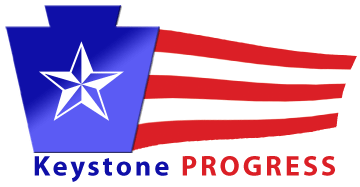
HARRISBURG (Oct. 11, 2011) – Teachers, taxpayers and parents want real education reforms that are proven to work for all of Pennsylvania’s students, not initiatives to drain more tax dollars from public schools, the president of Pennsylvania’s largest school employee union said today. Michael J. Crossey, president of the Pennsylvania State Education Association, said research-backed education reforms, coupled with adequate and equitable resources, will do more to improve student achievement than the initiatives outlined by Gov. Tom Corbett at a news conference today in York.
“The governor didn’t provide many details,” Crossey said. “But I know for certain that the $860 million in state funding cuts have forced the public schools to increase class sizes and cut programs. We need to restore those cuts, not spend more money on initiatives that don’t work.”
Crossey noted that the public supports education initiatives proven to work in Pennsylvania’s schools. A recent public opinion poll from Terry Madonna Opinion Research showed extraordinarily strong support for programs that provide more individualized attention and tutoring (89 percent), reduced class sizes (88 percent), safety initiatives (85 percent), full-day kindergarten and pre-kindergarten (83 percent).
None of those popular and effective ideas were included in Corbett’s reform outline.
“Tutoring programs, small class sizes, and full-day kindergarten are programs that we know work for Pennsylvania’s students,” Crossey said. “People across the state know it, too. These are the reform ideas that Pennsylvanians want and that our students need.”
The programs supported by the respondents to the Madonna poll are all included in PSEA’s school reform agenda, “Solutions That Work.” Read more about “Solutions That Work” at
The same public opinion poll noted that support for tuition voucher plans has eroded further in the past six months. Sixty-five percent of Pennsylvanians oppose voucher plans. When asked if they supported using any education funding restorations for vouchers, 59 percent opposed it.
This marks the third public opinion poll in less than 12 months in which Pennsylvanians expressed their opposition to vouchers.
“I think Pennsylvanians oppose vouchers because they know voucher programs don’t work and they know that the public schools are hurting because of these unprecedented funding cuts,” Crossey said. “It looks like the only person who really wants vouchers is the governor.”
The governor’s focus on rapid expansion of Pennsylvania’s charter schools, with little accountability or oversight, also makes no sense, Crossey said.
“At a time when Pennsylvania’s public schools are forced to cope with unprecedented cuts in state aid, rapid expansion of charter schools without even considering the fiscal impact is irresponsible,” Crossey said.
“Quality charter schools can be a valuable component of the Commonwealth’s education system, but significant questions about accountability and funding should be addressed in a careful manner,” Crossey said. “Creation of a statewide commission to approve charter schools would also take away the decision-making and voices of local taxpayers.”
A study released by Stanford University’s Center for Research on Education Outcomes in April 2011 shows that students in Pennsylvania charter schools on average make smaller learning gains in reading and math than their traditional public school counterparts. The Stanford study notes that strong examples of quality charters do exist in the state, but policymakers need to "drive quality throughout the sector.”
Crossey responded to the governor’s comments on teacher evaluations. "We agree with the governor that teacher evaluations need to be improved," Crossey said. "We support use of multiple objective measures of performance, and a streamlined dismissal procedure for teachers who fail to meet performance standards."
Crossey added that policymakers who suggest that Pennsylvania’s public schools are failing are wrong.
Students who took the state's standardized tests in the spring delivered improved scores in math, science, writing and reading tests over last year, according to the Pennsylvania Department of Education. The percentage of students who tested as advanced or proficient increased in all four categories on the state-administered Pennsylvania System of School Assessment tests.
Public schools are an investment in the future of our nation, our state, and our communities,” Crossey added. “If we want our students to continue to succeed, we need to continue to make these investments, not waste taxpayer dollars on programs that don’t work.”

No comments:
Post a Comment